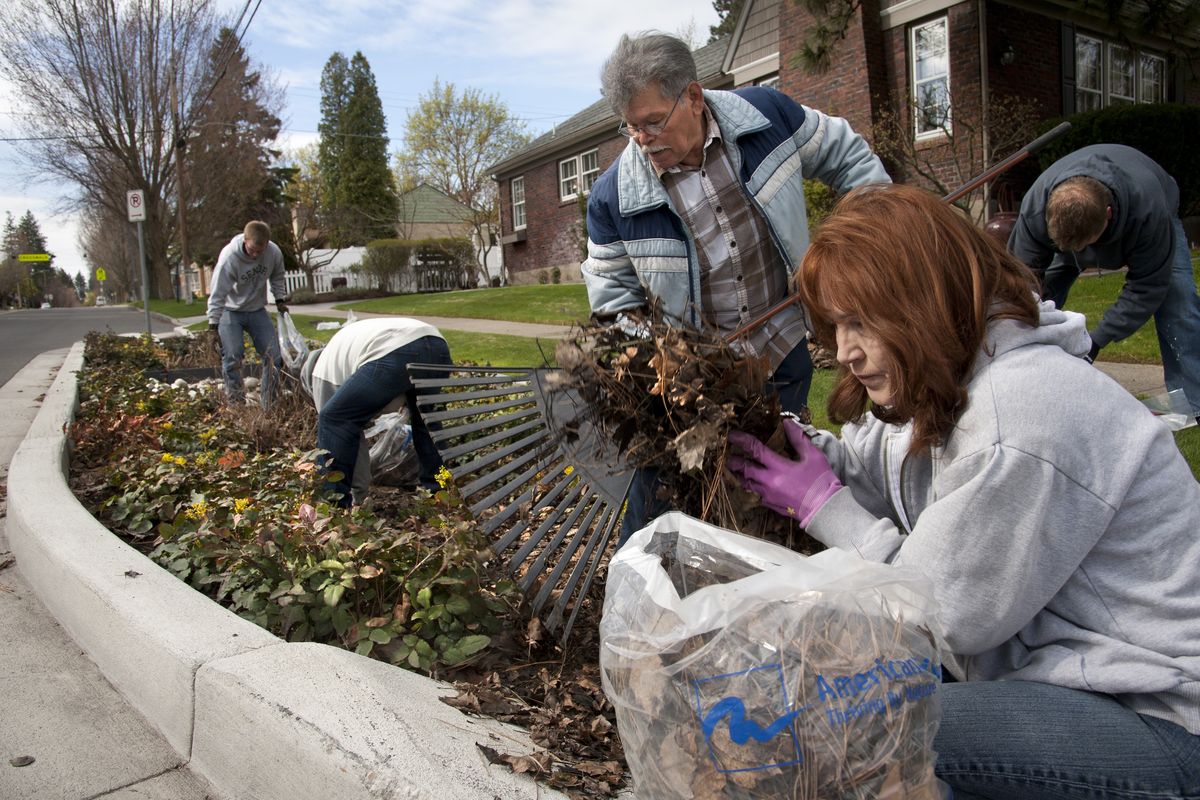Volunteers spruce up city’s storm gardens

It was Mike Dunnell’s day off on Saturday, so naturally he spent it cleaning debris out of the swales along South Lincoln Street with four other employees of Kohl’s department store.
Maybe it’s not everyone’s idea of a good time, but Dunnell and his crew were pleased to be doing something important for Spokane on the weekend before Earth Day.
“It’s our city,” said the assistant manager at the Kohl’s NorthTown store, “and it’s fun to get together with the team.”
These weren’t just any swales the crew was mucking out. These were “storm gardens,” which are filled with vegetation that helps absorb and filter street-contaminated stormwater before it runs into the Spokane River.
The Lincoln Street project, built during repaving in 2010, is part of a city effort to comply with the Clean Water Act by reducing pollution entering the river. The city of Spokane hopes by 2018 to cut in half the flow of untreated stormwater into the river.
Mayor David Condon’s stormwater proposal was in response to a state order to stop the flow of raw sewage into the river, a much more expensive proposition.
Swales, as well as overflow tanks that hold stormwater until it can be treated, are key to the city’s plan.
On Saturday, volunteers organized by Spokane Riverkeepers, the Lands Council and Spokane Ponderosa, in cooperation with Kohl’s and engineering company AHBL, were out keeping the swales clean so they can continue to absorb and filter stormwater.
Participation of the Kohl’s team was part of the retailer’s national “Go Green” campaign to promote environmental concerns.
Also volunteering were employees of AHBL, which did the plant design for the Lincoln Street swales.
The cleanup effort was a labor of love for AHBL landscape architect Craig Andersen.
“This is my commute to work,” he said.
Andersen said co-workers were also chipping in Saturday at the city’s other bio-filtration sites on West Broadway Avenue in West Central and on North Addison Street in the Lidgerwood area.
Over on Broadway, Kelly Cruz, a West Central resident, was raking out leaves and weeds from the swale.
“I think the city should be looking at more stormwater reduction before sinking a half-billion in tanks,” said Cruz, a candidate for the City Council seat being vacated by term-limited Nancy McLaughlin.
In fact, both solutions are likely necessary to help clean up the Spokane River, according to Mike Petersen, executive director of the Lands Council.
Just this week, Petersen said, the city asked for a proposal to build another bio-filtration system in the Shadle Park neighborhood.
“Green strategy is to keep that water on site,” Petersen said. “North of the river we have great soils for that sort of thing.”
He said it was a more difficult proposition south of the river because of all the impermeable pavement downtown and the basalt rock on South Hill, where overflow tanks may be a more practical solution.
“But eventually, we would like to see these green infrastructure projects spread out across as much of the city as we can,” Petersen said. “It’s more aesthetic and it should be a lot cheaper.”